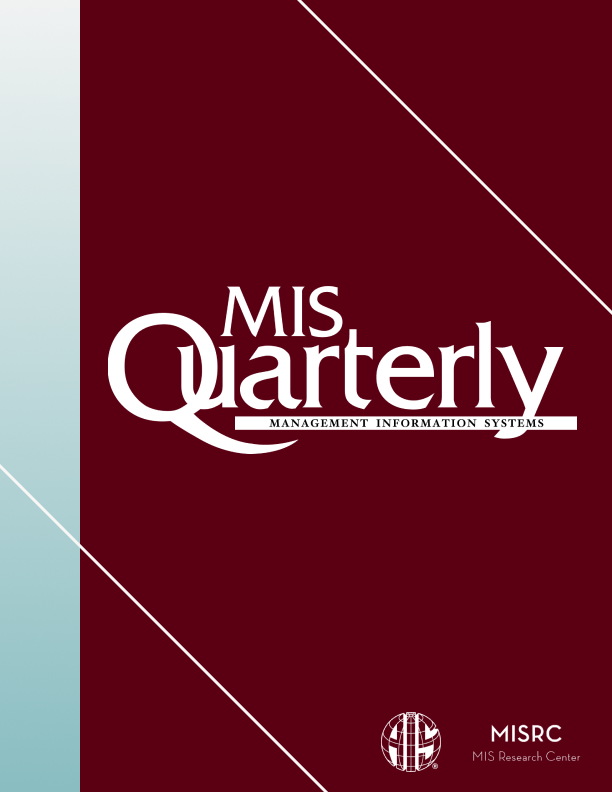Is Organizational Commitment to IT Good for Employees? The Role of Industry Dynamism and Concentration
IF 7
2区 管理学
Q1 COMPUTER SCIENCE, INFORMATION SYSTEMS
引用次数: 1
Abstract
While research on the consequences of organizational commitment to IT has focused on outcomes of interest to shareholders, such as profitability and firm value, recent research has also considered other stakeholders that might benefit from an increased organizational commitment to IT, especially customers. We extend this line of the literature by investigating the benefits of a firm’s organizational commitment to IT for firms’ employees, a stakeholder group that uses and depends heavily on IT in its daily work. This exploratory study links a firm’s organizational commitment to IT with the nonmonetary employee metrics of job satisfaction and work-life balance and embeds these associations in the industry’s dynamism and concentration. We test our research model with a multi-industry dataset of 523 firms from the S&P 500 (2008-2017 period). Our findings indicate that an organizational commitment to IT may facilitate job satisfaction and work-life balance but only when industry dynamism and industry concentration are low. Additional analyses show that IT commitment’s influence on these outcomes depends on the firm’s commitment to particular IT technologies; for instance, organizational commitments to cloud technology and remote technology are particularly positively associated with work-life balance.组织对IT的承诺对员工有好处吗?产业动态与集中的作用
虽然对组织对IT承诺后果的研究主要集中在股东感兴趣的结果上,如盈利能力和公司价值,但最近的研究也考虑了可能从组织对IT的承诺增加中受益的其他利益相关者,尤其是客户。我们通过调查公司对IT的组织承诺对公司员工的好处来扩展这一系列文献,公司员工是一个在日常工作中使用并严重依赖IT的利益相关者群体。这项探索性研究将公司对IT的组织承诺与工作满意度和工作与生活平衡的非货币员工指标联系起来,并将这些关联嵌入到行业的活力和集中度中。我们用标准普尔500指数(2008-2017年)523家公司的多行业数据集测试了我们的研究模型。我们的研究结果表明,组织对IT的承诺可能有助于工作满意度和工作与生活的平衡,但只有在行业活力和行业集中度较低的情况下。其他分析表明,IT承诺对这些结果的影响取决于公司对特定IT技术的承诺;例如,组织对云技术和远程技术的承诺与工作与生活的平衡尤其呈正相关。
本文章由计算机程序翻译,如有差异,请以英文原文为准。
求助全文
约1分钟内获得全文
求助全文
来源期刊

Mis Quarterly
工程技术-计算机:信息系统
CiteScore
13.30
自引率
4.10%
发文量
36
审稿时长
6-12 weeks
期刊介绍:
Journal Name: MIS Quarterly
Editorial Objective:
The editorial objective of MIS Quarterly is focused on:
Enhancing and communicating knowledge related to:
Development of IT-based services
Management of IT resources
Use, impact, and economics of IT with managerial, organizational, and societal implications
Addressing professional issues affecting the Information Systems (IS) field as a whole
Key Focus Areas:
Development of IT-based services
Management of IT resources
Use, impact, and economics of IT with managerial, organizational, and societal implications
Professional issues affecting the IS field as a whole
 求助内容:
求助内容: 应助结果提醒方式:
应助结果提醒方式:


